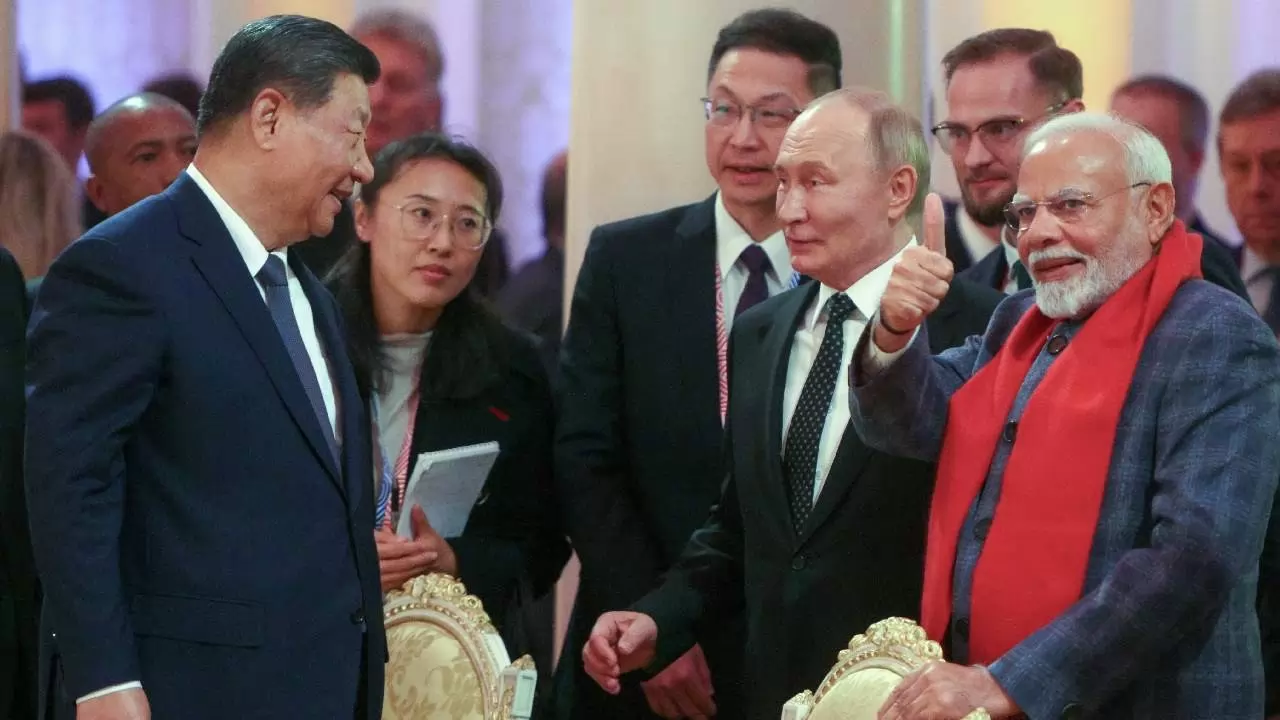
Prime Minister Narendra Modi with Russian President Vladimir Putin and Chinese President Xi Jinping at the dinner hosted for BRICS leaders, in Kazan on Tuesday. (ANI)
Modi-Xi Meeting: Modi government, now in its third term, has made it a priority to repair ties with China, strained after the Galwan Valley clash in 2020. The upcoming meeting between Indian Prime Minister Narendra Modi and Chinese President Xi Jinping at the BRICS Summit in Kazan is the result of months of negotiations and diplomatic efforts between New Delhi and Beijing, facilitated by Russia.
The long-anticipated bilateral meeting between Prime Minister Narendra Modi and President Xi Jinping, set to take place at the ongoing BRICS Summit in Russia, has been meticulously orchestrated over several months. This diplomatic initiative was spearheaded by Russian President Vladimir Putin, who sought to bridge the widening gap between India and China.
According to media reports, Russia has been actively encouraging both India and China to restore their relations, which deteriorated following the military standoff in eastern Ladakh in 2020. Multiple rounds of discussions, held during various BRICS events and the current summit in Kazan, have culminated in the realization of this high-profile meeting.
The groundwork for this meeting was laid earlier this year after Prime Minister Modi began his third term following the Lok Sabha elections. His administration made a conscious decision to prioritize improving relations with China.
This shift in strategy came against a backdrop of high-level talks aimed at defusing tensions between the two nations. In July, during a meeting in Astana, Indian External Affairs Minister S. Jaishankar and Chinese Foreign Minister Wang Yi engaged in critical discussions to explore ways of advancing bilateral relations. Later that month, on July 25 in Laos, both countries’ foreign ministers agreed to work towards a direct meeting between Modi and Xi Jinping.
On September 12, India’s National Security Advisor Ajit Doval and Chinese Foreign Minister Wang Yi finalized the details for future dialogues, solidifying the commitment of both nations to improve their ties. This set the stage for the forthcoming Modi-Xi meeting.
Several positive developments have contributed to a more favorable environment for the dialogue. In May 2024, China sent its new ambassador, Xu Feihong, to New Delhi. Upon his arrival, Ambassador Xu made several encouraging statements about India and has actively participated in a range of diplomatic engagements aimed at enhancing bilateral relations.
External Affairs Minister Jaishankar also highlighted that more than 75% of the issues stemming from the 2020 Galwan border conflict have been resolved. During his discussions with the Chinese side, NSA Ajit Doval underscored the importance of peace and stability along the border as essential to normalizing relations between the two countries.
In addition, the Chinese foreign ministry and state media have repeatedly issued statements praising India and expressing a desire to foster stronger bilateral ties. Efforts have also been made to relax restrictions on visas and trade, signaling a shared willingness to ease tensions and promote smoother exchanges between the two nations.





Copyright © 2026 Top Indian News
